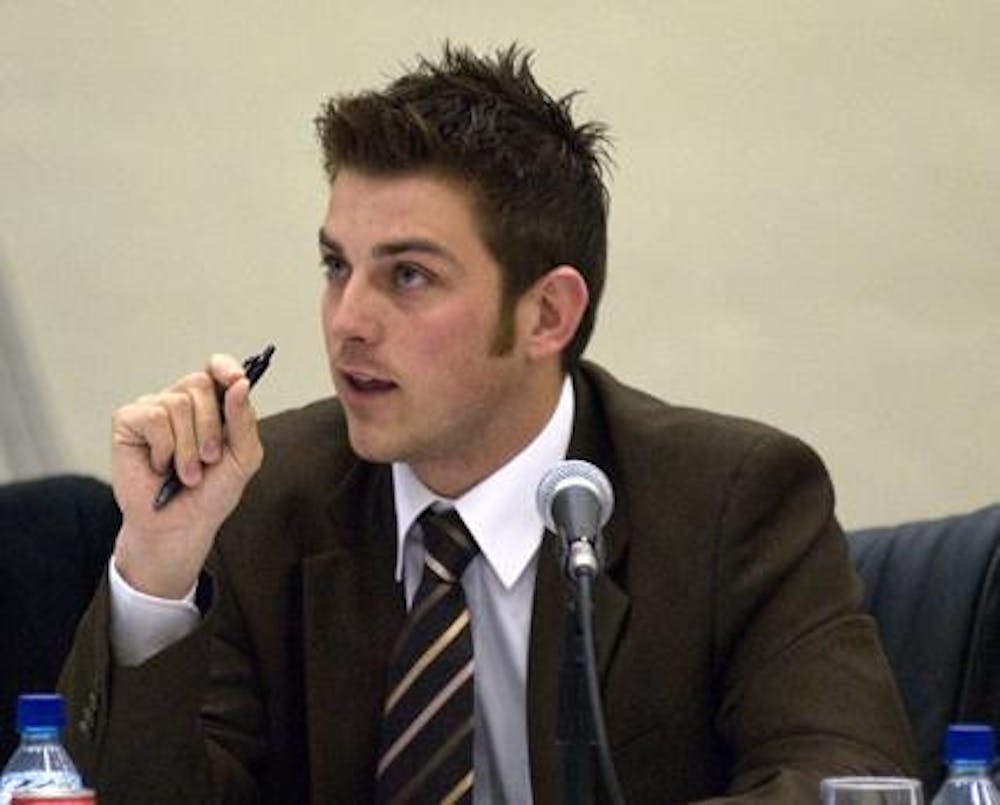TALLAHASSEE - In an unplanned move at its meeting Thursday, the Florida Board of Governors approved an 8 percent tuition increase for Florida's 11 state universities next year.
The money was earmarked to hire more faculty and advisers and to fund need-based financial aid. It is unknown whether the Florida Bright Futures scholarship program would cover the hike.
The board, the State University System's highest governing body, also decided to set enrollment limits at Florida universities to brace for impending budget cuts due to state revenue shortfalls.
Both measures will go into effect in the fall.
Bill Edmonds, spokesman for the board, said an 8 percent tuition increase would bring in an extra $93 a semester, or about $186 a year, from every student.
UF's tuition currently costs about $3,300 a year, according to the UF admissions' Web site.
The tuition increase is projected to bring in an extra $32 million statewide, Edmonds said.
According to the board, 70 percent of the revenue from the tuition increase would fund more faculty and adviser hiring, and 30 percent would provide need-based aid.
UF, Florida State University and the University of South Florida were already expecting tuition increases because of the previously approved the Tuition Differential Program, which was passed by the Legislature last year and will go into effect in the fall.
Those three universities can raise tuition up to 40 percent over four years, as long as the yearly increase does not exceed 15 percent.
Regardless of the new hike, they are still capped at 15 percent, Edmonds said. He said this is the second time the board has exercised its right to set tuition.
Members approved a 5 percent increase, which went into effect this semester, at the board's July meeting.
Whether the board actually has tuition-setting authority is still unclear.
The Florida Legislature instituted its own 5 percent tuition hike this semester, as well. A pending lawsuit from the board against the Legislature will decide which body has that power.
A judge threw out the lawsuit earlier this month, stating that the board failed to show standing in the case.
The board has until Feb. 4 to resubmit the suit with further evidence.
Edmonds said the board hasn't resubmitted additional evidence yet, but in the meantime it will continue to act under the belief that it has the power to set tuition.
The board will do so "until the court says no," he said.
Despite the ongoing lawsuit, Mark Rosenberg, chancellor of the board, downplayed concerns about the Legislature's reaction to the board's increase.
"I'm confident the Legislature understands that we want to work with them," Rosenberg said.
He said he didn't want to raise tuition, but he said the board was left with almost no choice.
"The rubber band is stretched as tight as it can be stretched," he said. "We are slowing down as a system. In essence, we're running out of gas."
However, Rosenberg said he wasn't worried about negative student reactions to the increase because of complaints about a lack of faculty, advisers and course availability - all problems the hike intends to solve.
Florida currently ranks last in terms of nationwide student-teacher ratios, according to statistics presented at the meeting.
Originally, one of the board members proposed an annual 13 percent tuition increase for the next five years, but it was reduced to the one-time 8 percent hike.
After the meeting, Sheila McDevitt, the board member who proposed reducing the amount of the hike, said she wanted to fix budget problems in the short term by setting an increase for only the fall.
UF Student Body President Ryan Moseley, the only student on the board, voted against the motion in a budget committee meeting before the full board meeting. Moseley said he didn't have enough time to consider the issue. But the motion passed after about 45 minutes of discussion at the budget committee meeting.
Moseley said he wanted the board to postpone further dialogue on the proposal until the next board meeting in March.
The board also unanimously passed a motion advising Florida's public universities to limit enrollment.
"We've reached a point in this state where we can no longer do more with less," said board member Tico Perez. "We're beyond cutting to the bone, and we're starting to cut off limbs."
Carolyn Roberts, board chairwoman, said the board would not assign each university a quota on how many students it can enroll.
Instead, she said trustees at each school would submit an enrollment plan to the board for approval.






